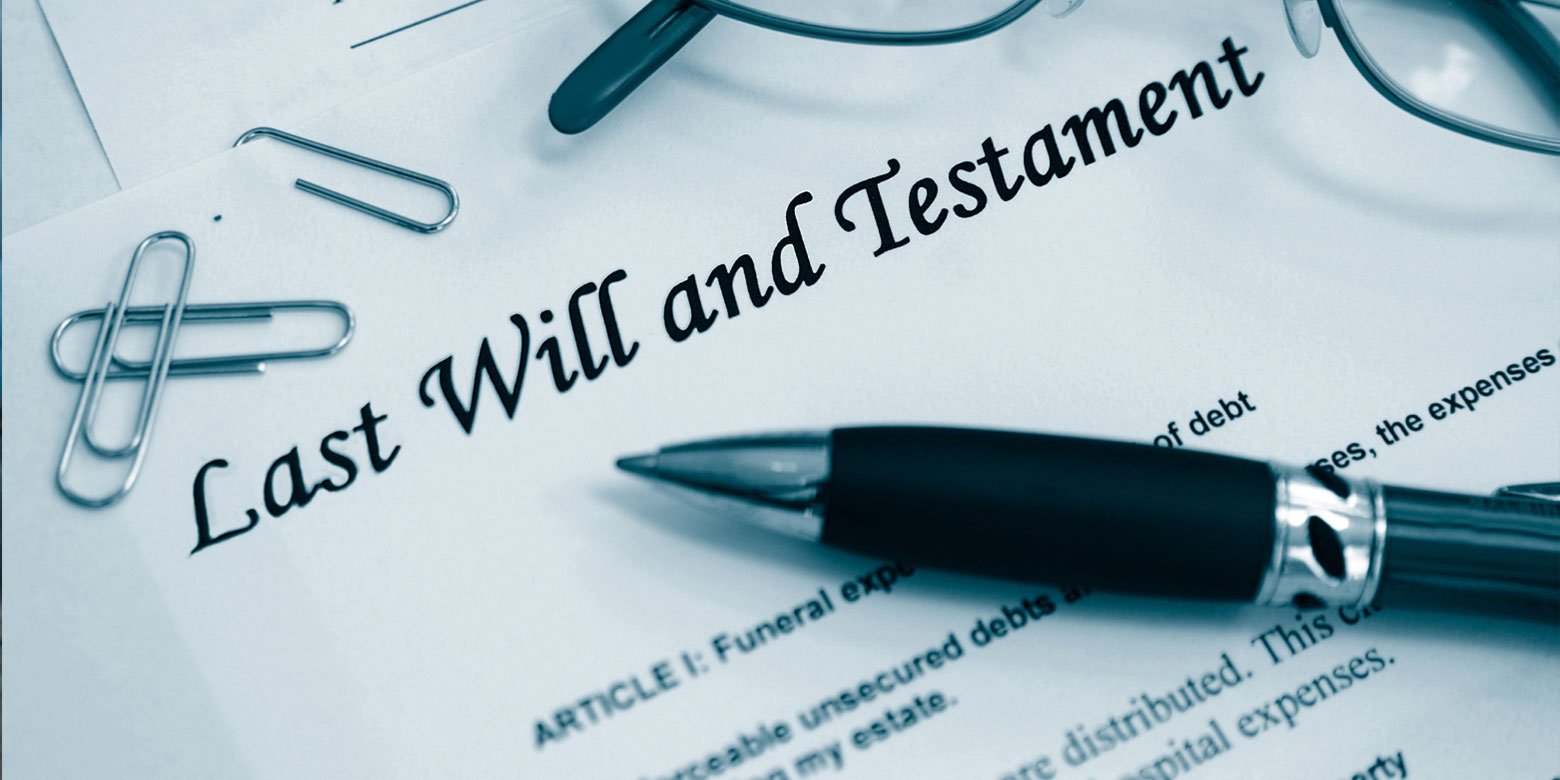You’ve likely heard over and over again the importance of making a will or establishing an estate plan. But did you know that some methods may be better than others when it comes to leaving an inheritance to your loved ones?
Beyond helping reduce the potential tax bill of a future inheritance, you may also want to consider accessibility and simplicity – especially considering the amount of stress your family will be under in the days following your passing. With a few simple changes to your estate plan, you can help ensure their inheritance is more of a help than a hindrance.
Let’s take a look at some of the most effective and tax-efficient ways to leave an inheritance to your kids, grandkids, and other family members.
Cash and cash equivalents
They say “cash is king” for a reason. It’s simple, easy for your heirs to divvy up, and people understand exactly how much it’s worth.
Cash is also the most liquid asset available. If your heirs have joint access to an account or are named beneficiaries, they’ll be able to retrieve the funds quickly. This can be helpful in the event they want to tap their inheritance to pay for funeral and burial costs, or other expenses related to end-of-life care.
Cash can be all-around simpler to navigate than property or investments, which may take months to value and sell — not to mention the potential tax liability you may incur by selling certain inherited assets for a profit.
To make things even easier for your heirs, you may want to consider consolidating redundant accounts. Otherwise, your heirs may have a hard time tracking down all of your assets during the estate distribution process.
If you do this, just keep in mind there are limits to FDIC and NCUA insurance on bank accounts and credit union members. Generally, accounts and members are insured for up to $250,000 per individual account.1
Certificates of deposit (CDs)
Certificates of deposit (CDs) are treated the same as other checking or savings bank accounts when inherited. The bank that carries your CD will have its own set of policies and procedures regarding CD beneficiaries, though generally one of two things will happen. Either the CD will close out and the beneficiary will receive a check, or the CD will remain in tact and the ownership will transfer to the beneficiary
Banks may make an exception to their early withdrawal penalties if the CD is inherited before it reaches full maturity, though this decision is not federally mandated.
The importance of POD instructions
Most bank accounts, including CDs and money market accounts, will allow you to establish what’s called “payable on death” or POD instructions. If an account has POD instructions, the funds will be directly disbursed to the designated beneficiary or beneficiaries — meaning they won’t have to go through the probate process. That’s because this is a contractual arrangement with the account holder and the financial institution, and it supersedes whatever is written in your will or other estate planning documents.
Life insurance policy
If you have an active life insurance policy at the time of death, it will pay out a death benefit in cash to your beneficiary or beneficiaries.
Like POD instructions, the designated beneficiary determined by a life insurance policy is legally-binding and cannot be overruled by what’s included in your will or other estate planning documents.
This can be both a good thing and a bad thing. The life insurance policy and its death benefit payout bypass probate court. Your heirs get their money sooner, and they don’t have to wait for the courts to verify the will. On the other hand, it means that if you neglect to update your beneficiary designation (say after a divorce, separation, or death in the family), the payout may not go to your intended recipient.
Claiming death benefits
It’s typically a quick and easy process for your loved ones to collect their life insurance money. They’ll need to obtain a copy of the death certificate and submit it with some general information to the insurance company.
Death benefits are paid out as cash (usually in the form of a check), and they are generally tax-free for the beneficiary.2
Stocks and bonds
We should start by specifying that we’re talking about stocks and bonds held within a taxable brokerage account — as opposed to a tax-deferred account like a 401(k).
Investments held in brokerage accounts are advantageous for a few reasons. First, they’re typically liquid, meaning your heirs can sell the stocks and convert them to cash fairly quickly. Some assets or alternative investments are illiquid, meaning they take much more time and effort to value, market, and sell. Just consider the difference between selling shares of stock on a trading platform and selling a house — one is a much more involved and time-intensive process than the other.
Stocks and bonds are also fairly transparent. Your heirs will be able to find the value of them by reviewing the market price on any given day.
Similar to your savings and checking accounts, you should be able to include a beneficiary designation or "transfer on death" (TOD) instructions. You may need to ask for a TOD form, since not all brokerage firms require you to name a beneficiary when first establishing an account.
Step-up in basis: explained
Here’s perhaps the biggest benefit of all — a little something called "step-up in basis".
When you purchase a stock, you pay a certain price for that stock. This becomes known as the cost basis. When the time comes to sell the stock, you’re either going to earn a capital gain or loss, depending on whether the sale price is higher or lower than the cost basis. If you receive a capital gain, it may be considered taxable income.
But what does this have to do with transferring wealth to your loved ones?
If you die, your investments’ cost basis changes to the market value on the day you die.
Here’s an example of why that can be a significant advantage:
Say you bought Apple stock when it first went public in 1980. If you were to sell it today, you’d likely owe a small fortune in capital gains tax, because it’s risen in value exponentially in the past 40+ years. If you die, however, and leave the stock to your heirs, things “reset”, so to speak.
When your heirs sell those inherited shares of Apple stock, the gains won’t be measured by the cost basis when you bought it, but by what the market price was when you died and they inherited it. If they sell soon after your death, it’s likely their tax liability could be minimal, since the stock won’t have much time to change in value.
Roth IRA
As you’ve been preparing for retirement, you’ve likely had to decide between contributing to traditional retirement accounts like a 401(k), a traditional IRA, or Roth accounts. While the former two can yield some nice tax advantages on the front end, since contributions are deductible, the latter has the potential to create tax-free income in retirement — making it a powerful addition to anyone’s retirement savings strategy.
A Roth IRA or Roth 401(k) is funded using after-tax dollars, meaning your contributions aren’t deducted from your taxable income each year. However, the funds in the account grow tax-deferred, and qualified distributions are tax-free.
In terms of estate planning, Roth accounts are an often overlooked tool for transferring wealth in a tax-efficient way. Just as you’d receive tax-free withdrawals in retirement, so can your heirs. If you have a Roth IRA or Roth 401(k), you can include beneficiary designations for your accounts.
Are Roth accounts better for estate planning than traditional IRAs and 401(k)s?
With traditional IRAs and 401(k)s, the IRS eventually wants to collect its share — because remember, the contribution and growth inside a 401(k) or IRA isn't taxed up front. Whether you’re the original owner or you've inherited the account, anything withdrawn from a traditional IRA or 401(k) will be considered taxable income.
Here’s the kicker — non-spouse inheritors (namely, children and grandchildren) will need to empty the account within 10 years of inheriting it.
Their options are to either:
- Take a lump-sum distribution from the account, which would be taxed as ordinary income. Doing this would likely result in a sizable tax bill.
- Transfer the funds directly into an inherited IRA (called a trustee-to-trustee transfer).
If your non-spousal beneficiary chooses to transfer the funds into an inherited IRA, they will have 10 years to then empty the inherited IRA. Neglecting to do so could land them a hefty 25% tax penalty on anything remaining (which can be reduced to 10% if fixed within two years).3
Your heirs will also need to continue taking required minimum distributions (RMDs) during the 10-year period if you were taking them before you died.3
While Roth accounts are subject to the same 10-year distribution window as traditional IRAs, they aren’t subject to RMDs, which can make them a more flexible and tax-efficient option for your heirs.
Remember, your estate is a gift to your loved ones
Establishing a well-thought-out and well-crafted estate plan can help make the period following your death a little less stressful for your loved ones. Not all assets and accounts are created equal, and you may want to consult an estate attorney and adjust your portfolio or retirement income strategy to consider what will work best for transferring wealth to your family in the future.

Like what you're reading?
Join the thousands of readers getting stories like this delivered straight to their inbox every Thursday — for free. Give it a spin, enter your email to sign up.
Sources:
1 “Deposit Insurance FAQs.” Federal Deposit Insurance Corporation. April 1, 2024. Accessed August 26, 2024.
2 “Life Insurance & Disability Insurance Proceeds.” IRS. June 10, 2024. Accessed August 26, 2024.
3 “Publication 590-B (2023), Distributions from Individual Retirement Arrangements (IRAs).” IRS. Accessed August 26, 2024.
Related Articles

Wealth and Financial Planning for the Self-Employed
According to the Bureau of Labor Statistics, over 16.7 million people were classified as...

Could an In-Service Distribution Be a Good Idea for You?
If you have a retirement plan at work — especially if you're at least 59 ½ years old — you may have...

5 Creative Ways to Prepare for Retirement While Unemployed
At some point, you may find yourself unemployed—either of your own volition or, in the worst case...
